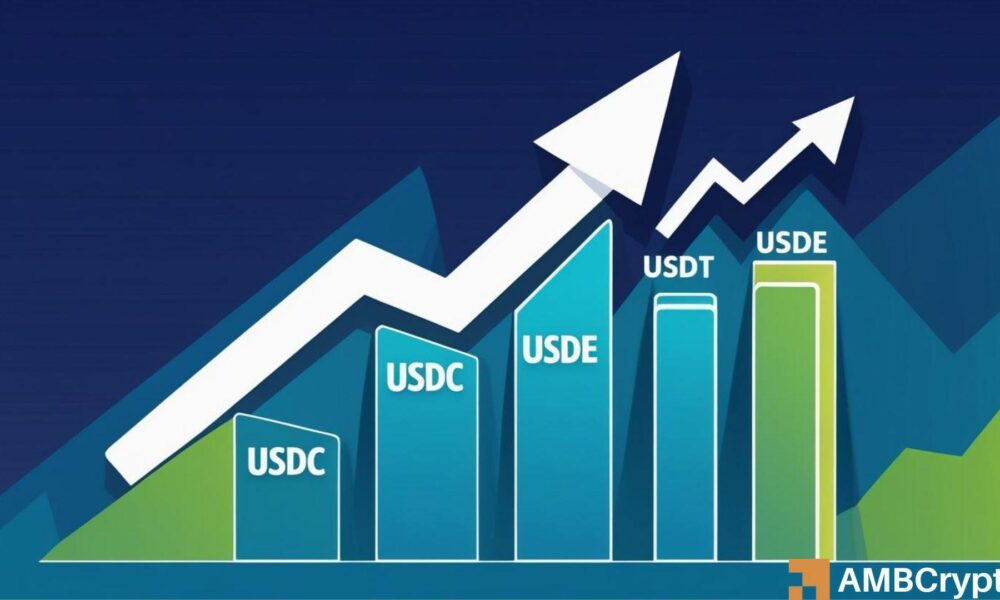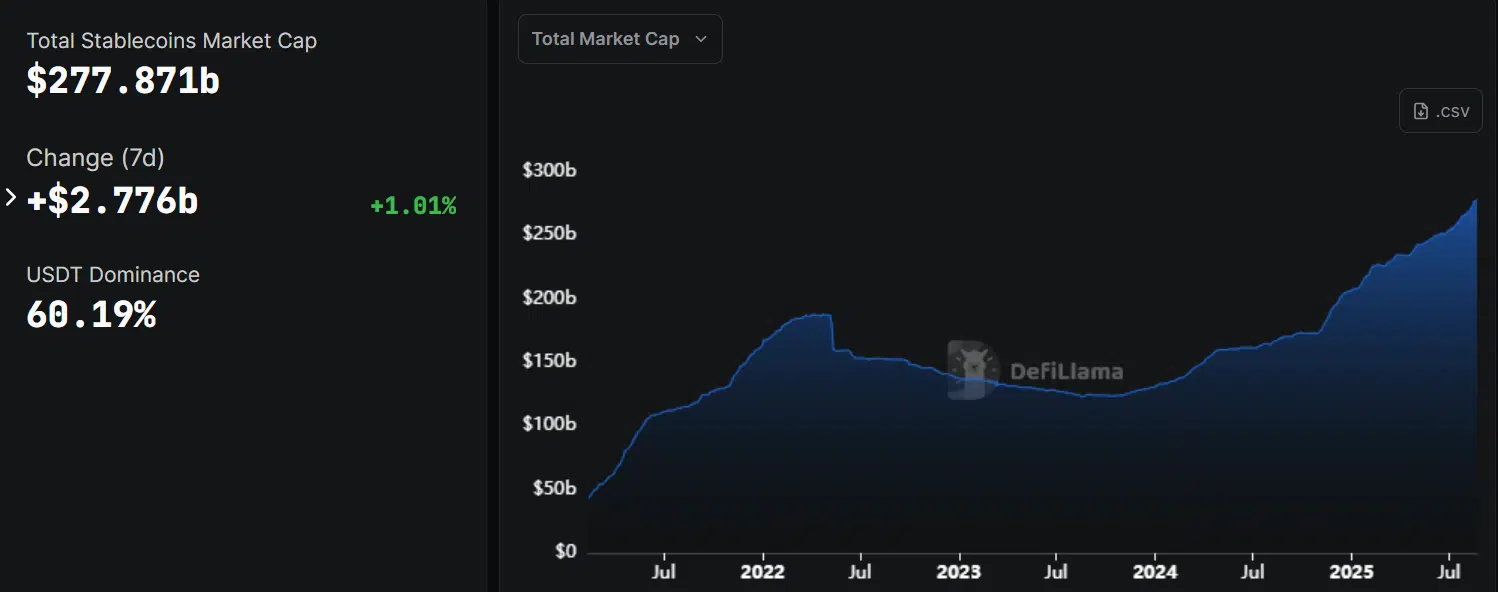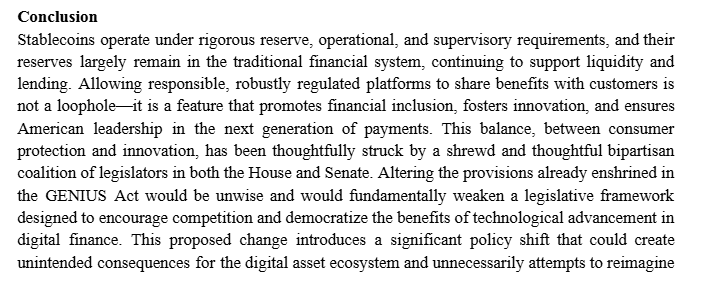Key Takeaways
The stablecoin market has grown by $18B to nearly $278B after the GENIUS Act was signed into law in July. Interest-bearing stablecoins dominated the boom.
The stablecoin market has expanded by nearly $18 billion since President Trump signed the stablecoin bill into law on the 18th of July.
The market increased from $251B to nearly $278B as of press time.
Ethena’s USDe leads stablecoin surge
Below the hood, the growth was not led by the top players like Tether’s USDT or Circle’s USDC. The increase was mainly driven by yield-bearing stablecoins like Ethena’s USDe.
In the past month alone, DeFiLlama showed that USDe exploded 80% to $11.7 billion market size. Over the same period, USDT expanded 2.6% to $167B, while USDC saw a 4.6% growth to $67B.
Amongst the major movers, PayPal’s PYUSD and Falcon’s USDf also rallied 42% and 89% respectively over the past month.
Ethena’s USDe has been offering up to 10% annual interest, triggering a lot of interest and demand. In April, PayPal introduced a 3.7% yield on its stablecoin to boost payment activity.
Similarly, Falcon’s USDf is a yield-bearing digital dollar that allows holders to earn some interest if they stake it.
In other words, yield-bearing stablecoins expanded 10%-90% over the past month and drove the $18B surge.
But whether the growth will be sustainable remains to be seen as the banking sector pushes to block the interest paid on stablecoins.
Crypto vs. the banking sector
On the 12th of August, the Bank Policy Institute urged lawmakers to close a GENIUS Act loophole that allows stablecoins to pay interest.
The banking lobby argued that the trend could lead to capital flight and affect the bank’s ability to offer loans.
In response, a crypto lobby led by the Blockchain Association and Crypto Council for Innovation slammed the banking lobby.
In a letter to the Senate, the crypto group said that it will ‘oppose alteration’ of the GENIUS Act provisions, as it will undermine fair competition.
The group also criticized banks’ extractive model, adding that U.S. citizens still get less than 1% interest for their savings, yet the Fed interest rate was above 4%.
That said, the U.S. Treasury recently asked for public input on tracking illegal activity in stablecoins. This will inform part of the rulemaking that helps implement the provisions of the GENIUS Act.



